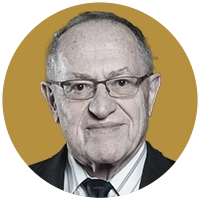High Stakes at Harvard
This article is from the archive of The New York Sun before the launch of its new website in 2022. The Sun has neither altered nor updated such articles but will seek to correct any errors, mis-categorizations or other problems introduced during transfer.

There was a time, in the not-too-distant past, when Harvard University was a model campus when it came to discussions of the Arab-Israeli conflict. To be sure, there were a small number of extremists and haters on both sides, but the discourse around campus was generally respectful, nuanced, and constructive. All sides received fair hearings, both inside and outside of the classrooms.
One incident comes to mind that exemplifies the spirit of mutual respect at Harvard. When Yasser Arafat died, a group of Palestinian students wanted to fly a Palestinian flag at half-mast on their own improvised flagpole. They were refused permission on the grounds that the university permits the flying of flags only of recognized nations.
The students came to me for assistance, knowing that my own views of Arafat were entirely negative, but that I believed strongly in free speech and fair play. I helped them get the policy changed and they were given permission to fly their flag.
There were many other examples as well of pro-Israel and pro-Palestine groups working together. Indeed, the mantra of the pro-Israel students at Harvard, which I suggested several years ago, is that “we are pro-Israeli and pro-Palestinian.”
Harvard was different from other campuses on which shrill name-calling and strident extremism were more common than nuanced discussion. No department was captive to one side or the other. Harvard returned a contribution from an Arab group with an anti-Semitic Web site. In my speeches around the country, I would proudly proclaim that Harvard was not Columbia.
Then quite suddenly, two events occurred in quick succession that raise troubling questions about the situation at Harvard. The first was the forced resignation of President Lawrence Summers, and the second was the publication on the Kennedy School Web site of a “working paper” co-authored by the school’s academic dean.
Although there were many reasons for Mr. Summers’s resignation, one of them clearly related to Israel. The original no-confidence motion against Mr. Summers – which precipitated his downfall – contained an explanatory note that explicitly condemned Mr. Summers for his 2002 speech in which he said calls from professors and students for divestment and boycott directed only at Israel and Israeli scholars were “anti-Semitic in their effect if not their intent.” Although the explanatory note was eventually removed from the motion, it was the 400-pound gorilla in the room. Mr. Summers was being condemned – at least in part – for expressing pro-Israel views deemed offensive by some of the faculty.
The publication of the “working paper” – which asserts that a cabal of American Jews are placing the interests of Israel above those of the United States – is even more troubling. As an advocate of free speech and an opponent of political correctness, I welcome a serious, balanced, objective study of the influences of lobbies – including Israeli lobbies – on American foreign policy.
I also welcome reasoned, contextual, and comparative criticism of Israeli policies and actions. I do not fear the truth. Let the marketplace of ideas remain open to all. But this study is so filled with distortions, so empty of originality or new evidence, so tendentious in its tone, so lacking in nuance and balance, so unscholarly in its approach, so riddled with obvious factual errors that could easily have been checked, and so dependent on biased, extremist, and anti-American sources, as to raise the question of motive: What would motivate two well recognized academics to depart so grossly from their usual standards of academic writing and research in order to produce a “study paper” that contributes so little to the existing literature while lending so much comfort to anti-Semites?
It is a question that is being asked by many and has not been answered satisfactorily, especially since the dean has not yet accepted a debate challenge that I issued several days ago.
It is important to note that neither Dean Walt nor those faculty members who sought Mr. Summers’s removal because of his speech about Israel speak for Harvard University. I have asked the Kennedy School to allow me to respond to the Walt paper on its Web site, with equal space and prominence. Dean David Elwood has agreed – with certain conditions – to my request.
I hope that the tone of respectful and nuanced debate about the Arab-Israel conflict will not change as a result of these two troubling incidents. This will depend on how Harvard, as an institution, responds to them. If the corporation appoints an “anti-Summers” – a politically correct, knee-jerk radical who will encourage divisiveness on Israel and other “agenda” issues – that would be a dangerous turn of events. If the Kennedy School permits an equal response to the Mearsheimer-Walt paper on the Kennedy School Web site, as I expect it will, that would send a positive message.
The ball is now in Harvard’s court. Precisely because Harvard has been a model of fairness in the past, and because it is an important symbol of American higher education, the stakes are quite high.
Mr. Dershowitz is a professor of law at Harvard. His latest book is “Preemption: A Knife That Cuts Both Ways.”

